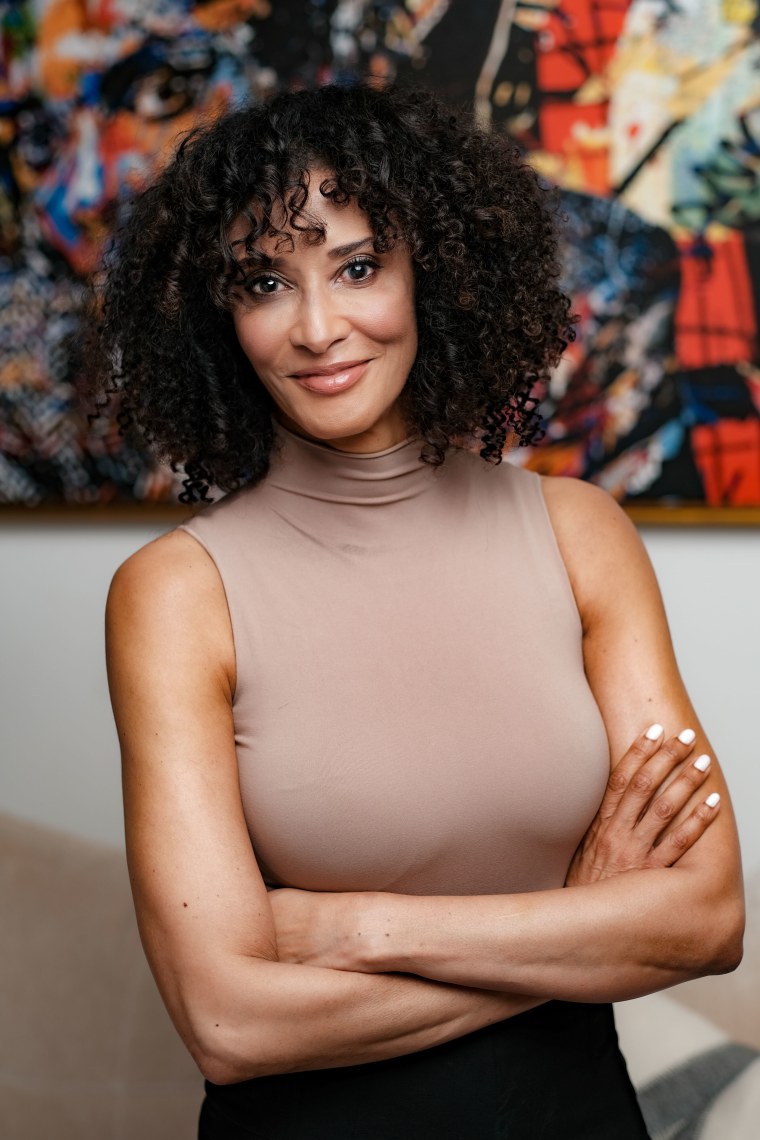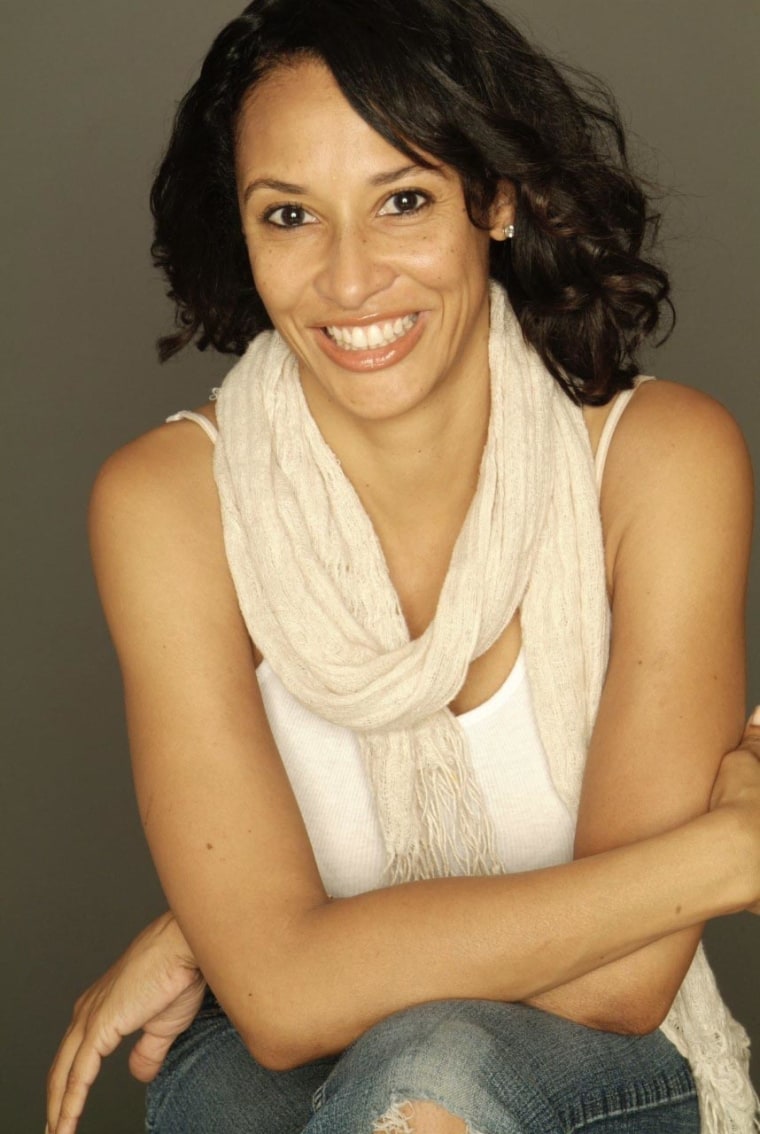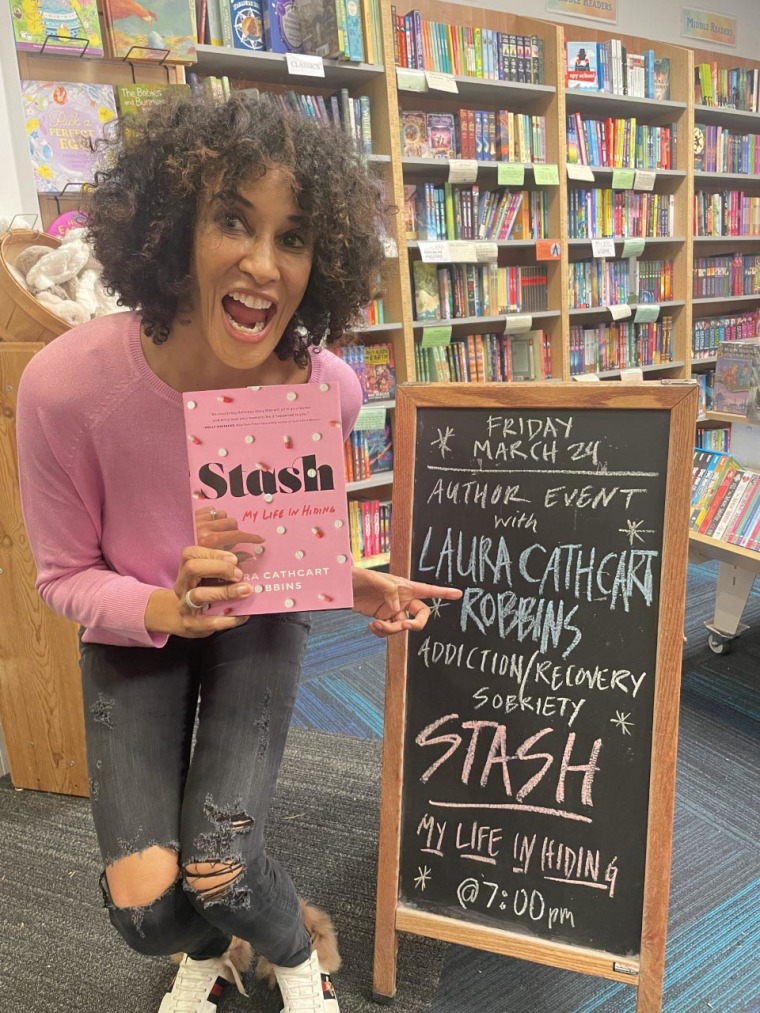One in 10 women take medication to fall or stay asleep, according the Centers for Disease Control and Prevention. Laura Cathcart Robbins, 58, was one of them when she became addicted to Ambien, the prescription sleep aid.
The safety and prescribing information for Ambien warns the medication can be abused or cause dependence, and recommends treatment be as short as possible. In a statement, drugmaker Sanofi says it stands behind "the robust clinical data that have demonstrated the safety and efficacy of Ambien since its approval in the U.S. in 1992," and notes patients should only take it as directed by their doctor.
Cathcart Robbins, who writes about her Ambien addiction in her new memoir "Stash: My Life in Hiding," shares her story with TODAY.com.

I was introduced to Ambien through my regular physician in 2002. I had two boys, both under 3 at the time, and they were terrible sleepers. Even when they were asleep, I wasn’t able to sleep because I was anticipating their wake up.
I told my doctor I thought I was dying. I didn’t know what was going on. He said, “Let’s get you sleeping again” and prescribed Ambien — one per night for 10 days.
It was like I’d had an alarm bell ringing in my head for a year and after I took that first pill, it went silent. I was a different person: I had energy, I was excited to be with my kids, I had the best experience.
I got another bottle after the first one, but I didn’t take a pill every night because I didn’t need to. I thought I had found my panacea — this was the missing ingredient in my motherhood. I thought, “I’m going to take this for the rest of my life as needed.”
My tolerance to the medication built. The second year, I was taking one pill every night, not just one every once in a while. Going into the third year, I was taking one-and-a-half pills because one wasn’t putting me to sleep anymore.
I loved everything about Ambien. It was like warm golden oil separating my head from my shoulders. I was floating. I felt free. It was euphoric. But after three years, I didn’t experience it the same way. I continued to take it because I was so addicted that when I wasn’t taking it, I couldn’t sleep and was in a really debilitating withdrawal with nausea, shakes and pain.
Four years in, I was taking two pills to get to sleep and a whole one in the middle of the night. The sixth year, which was 2008, I was taking 10 pills — nine at night and then breaking a single one up during the day because the withdrawal would be too bad if I didn’t have something in my system.
To have a steady supply, I went to different doctors for the same prescription. I had almost all my doctors prescribing me Ambien — my OB-GYN, regular doctor, orthopedic surgeon and psychiatrist.
I discovered by accident that when I drank alcohol with the Ambien, it boosted the effect. The high was more intense. Eventually, the pills didn’t work at all without the alcohol.
I had a glamorous and very busy life. I was married to a director in Hollywood so there were premieres and dinner parties. I was the parent association president. I’d just been asked to join the board at my kids’ very elite, prestigious private school.
I wasn’t getting high during the day, but put just enough Ambien in my system to keep from going into withdrawal, which was usually one pill that I would break it up into quarters throughout the day.

I was absolutely miserable. The more I had to present this outer Laura who was fun and a great mom and excited to be wherever she was, the more I wanted to withdraw, which is what I did as soon as I got home. I didn’t talk to anybody. I didn’t see anybody. I removed myself from all of my friendships because they were just too exhausting. It was all I could do to get out there and pretend.
I was poisoning my body and my brain. It was the worst in 2008, the year that I got sober. It was 4th of July and I realized I couldn’t get high anymore — even with the vodka and the pills, I wasn’t getting what I needed. I was in panic, but I couldn’t be sober because I was in full-blown withdrawal.
The other realization was that I had two kids that I was desperately trying to show up for and I realized they would either have to visit me in institutions for the rest of my life if I kept going the way that I was or they might have to bury me.
That was the turning point for me. I made a reservation at a treatment center in Arizona that weekend and went 10 days later. I’ve been sober since then.
There were no books written by women who look like me about addiction or recovery in 2008, and very few books about mental health written by Black women, period.

I also have another layer to my story, which is privilege. Black women’s stories dealing with addiction and mental health usually include things like drug dens, physical or sexual abuse, prostitution, and I don’t have those elements in my story.
When I started writing “Stash,” there was still nothing written from that point of view. I figured I needed to write the book I needed in 2008.
Being an addict who’s a mother was so shameful for me because I felt that society expected more from moms.
But when it comes to addiction, it doesn’t matter what your roles are in life, how much money you have in the bank, what you’re going through in your life, what you drive. I thought I could manage it, but I wasn’t able to. The strength is in the seeking of help.
Today, I am so incredibly grateful for my life. I can’t imagine missing out on this.
This interview was edited and condensed for clarity.
